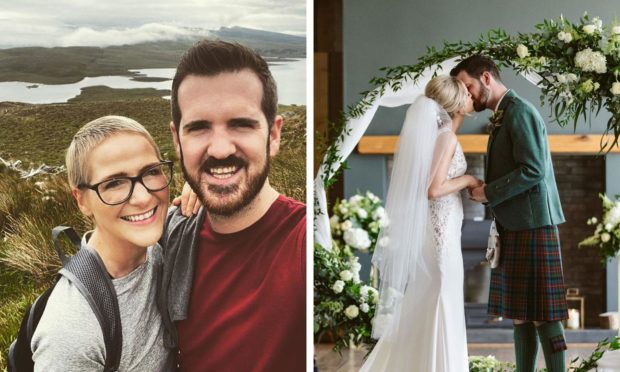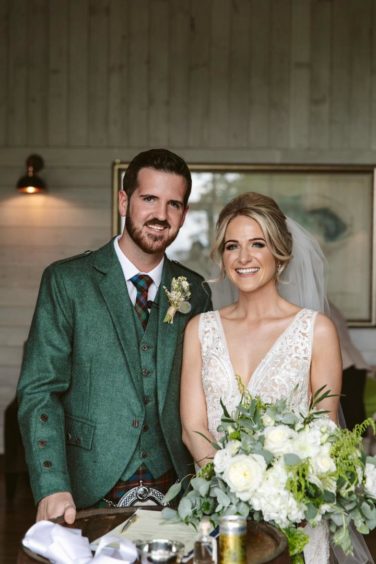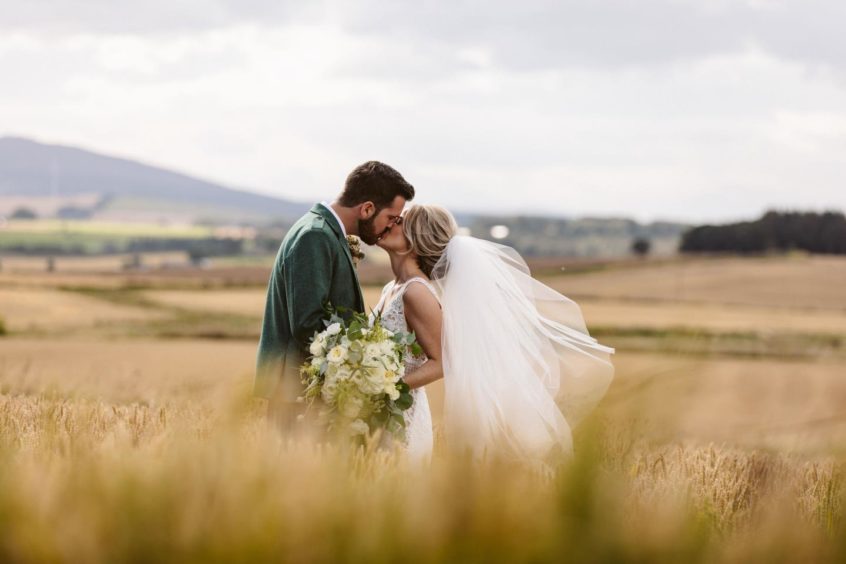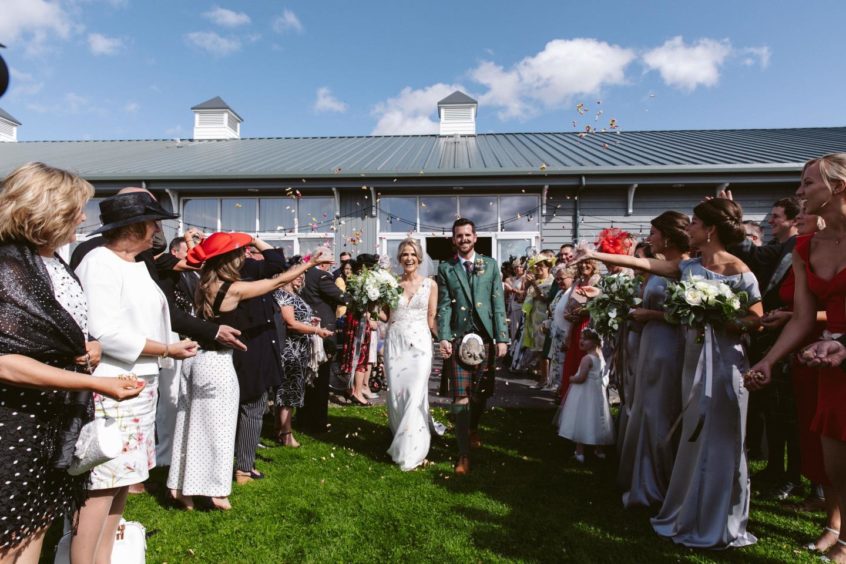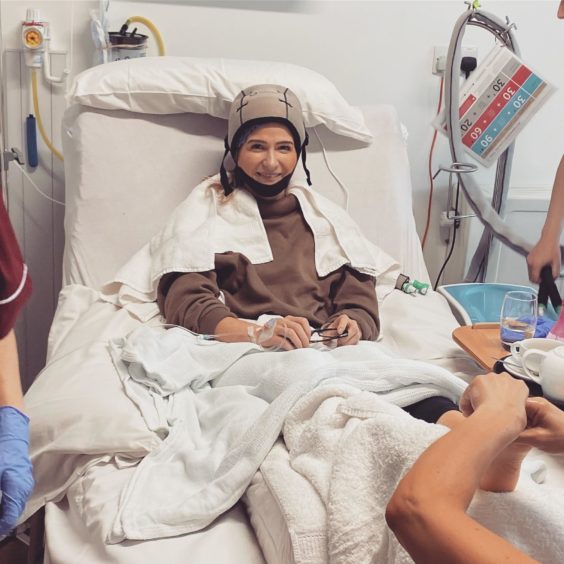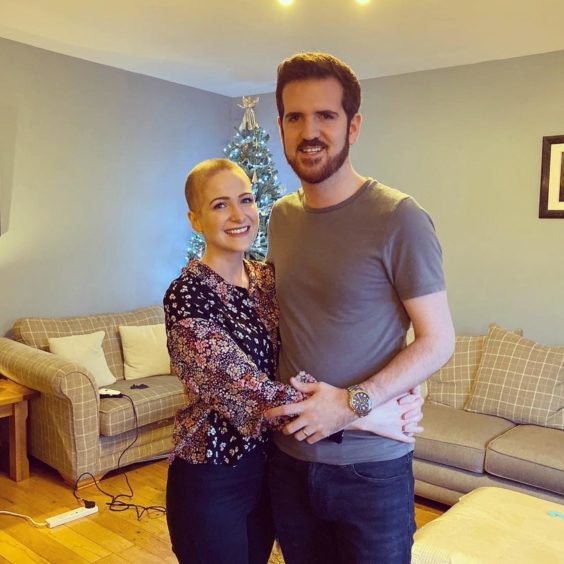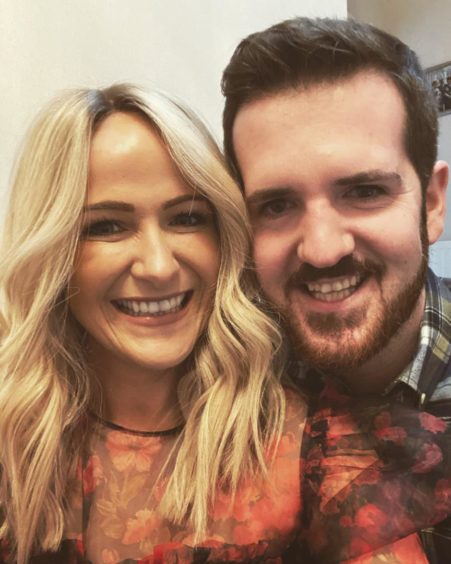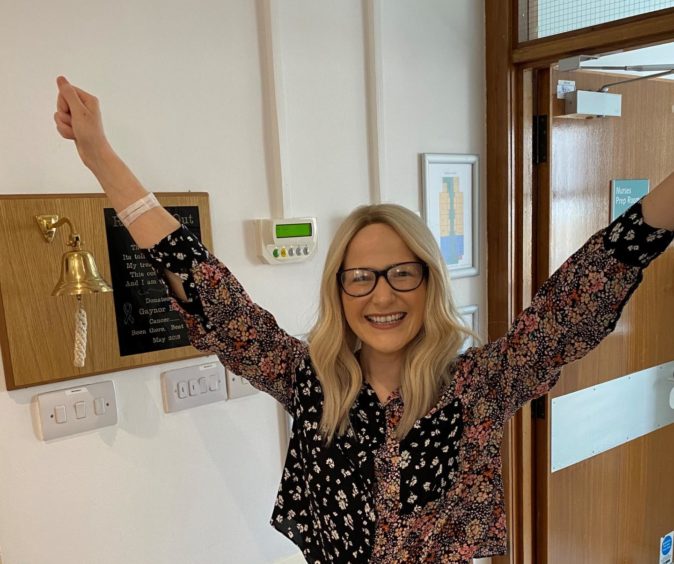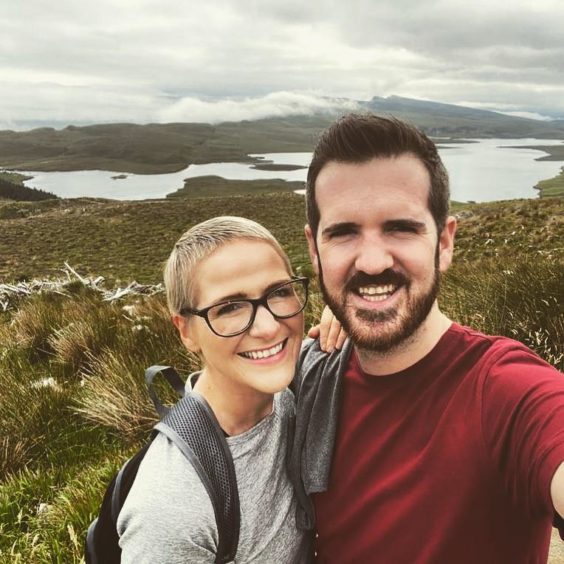A woman who was diagnosed with triple negative breast cancer, just days before her wedding, has spoken of her journey in a bid to help others “on the other side of cancer”.
After finding a lump in her breast, Gillian Spence was told she had an aggressive form of cancer aged 31. Not only that, she was just 11 days away from marrying her husband, Andrew, at the time.
Today, Gillian is cancer free and has bravely chosen to speak about the unspoken – how do you adjust to ‘real life’ post-cancer?
“You hear the sad stories of people losing their battles to cancer and it’s really heartbreaking,” said Gillian.
“But what happens to the people who are on the other side of cancer, who are expected to get on with real life?
“When I got to that stage I thought, ‘why am I finding this so hard?’, and it’s because no one ever said to me, ‘Gillian, prepare yourself for after treatment’.
“I thought I’d feel a weight lifted on my last day of radiotherapy, but I was thinking, ‘I’m not ready’.
“When I finished treatment I thought I’d go back to being Gillian. But when people asked how I was doing it was hard to say I was struggling to navigate that bit, so I’d say I was fine.”
The diagnosis: ‘Accepting in myself that I hadn’t done anything wrong was a hard thing to do’
In July 2019, Gillian was showering when she discovered an unfamiliar lump in her breast. With a history of breast cancer in her family, she knew it was important to address any potential health scare promptly.
An anxious visit to her GP in Aberdeen resulted in Gillian being referred for urgent tests in the form of a mammogram and an ultrasound.
The ultrasound showed a tumour in one of her breasts, but a full diagnosis was yet to come. Therefore, Gillian endured a nerve-wracking wait before finding out the full extent of the cancer – all while getting ready for her big day and going on her honeymoon.
Gillian, who wed at Inverurie’s The Barn at Barra, said: “In between fake tan and getting my nails done, I was fitting in MRIs and blood tests. The MRI was to check if the cancer had spread anywhere else in my body, and biopsies would confirm the type of cancer.
“So when I was married I knew I had breast cancer, but I didn’t know what kind or where exactly it was.
“My husband knew, obviously. His parents knew, my parents and my twin sister knew, but I didn’t want anyone else to find out.
“I wanted to be a bride and it would have made people feel differently towards me if they’d known.
“So I was a bride that day, and it wasn’t until I woke up the next morning that I thought, ‘okay, I’ve got cancer.'”
I couldn’t go down the ‘why me’ road – that’s a hard place to come back from.
Accepting her diagnosis wasn’t easy, especially at an age when she considered herself to be young, fit and healthy.
“I tried not to blame myself for anything,” said Gillian.
“At the time when I was diagnosed, I’d never been fitter in my life.
“It did and still does play on my mind. Sometimes I think, ‘was there anything I could have done differently?’.
“Accepting in myself that I hadn’t done anything wrong was a hard thing to do. But you can’t let your mind go there.
“I couldn’t go down the ‘why me’ road – that’s a hard place to come back from.”
Upon returning from her honeymoon, doctors informed Gillian she had triple negative breast cancer.
The treatment: ‘A buckles and braces approach’
With a diagnosis confirmed, a treatment plan was formed by Gillian’s consultant; surgery, chemotherapy and radiotherapy.
Although an MRI showed there were no further tumours, chemotherapy and radiotherapy would ensure any stray cancer cells would be caught.
Gillian underwent surgery to remove the tumour in her breast in September 2019, which also saw lymph nodes removed for testing too, and a small area of tissue around the tumour – known as “margins”.
“My nodes were clear and my margins were clear,” explained Gillian. “But because of the type of cancer I had – it’s more aggressive – my consultant decided on chemo for me as part of a buckles and braces approach. Then it was onto radiotherapy.”
Aside from treatments to eradicate the cancer, Gillian chose to have her eggs frozen as chemotherapy can affect fertility.
She also had genetic testing for five different genes including the BRCA gene.
Much to her relief, Gillian’s genetic tests came back clear.
The chemotherapy: Meeting Winnie the wig
Recovered from surgery, Gillian, a project administrator at an Aberdeen-based oil and gas firm, began the next chapter of her treatment plan in November 2019. The chemotherapy was to last six months.
Describing chemotherapy as “in no way easy”, Gillian suffered from multiple side effects including nausea, fatigue, hair loss and hot flushes.
“I was essentially a menopausal 32-year-old because I was put into a medical menopause to protect my ovaries,” Gillian said.
“I had hot flushes and they took me to breaking point. I found those side effects really hard.
“Then I remember feeling like I was losing my identity when my hair started coming out. When it did, I shaved it all off so I at least had a sense of control over it.
“I just accepted that I was losing my hair and I had a real hair wig made.
“I had it cut and coloured to how I wanted it – this wig, who I called Winnie – was just beautiful.
“It made me feel like me, it was like a comfort blanket. I think some people didn’t even realise I’d lost my hair.
“I even had pamper nights with Winnie once a week when I’d wash and style her.”
The radiotherapy: ‘It was too final and I wasn’t ready’
Three weeks after the grueling chemotherapy treatment ended in May last year, it was time for Gillian to face the final part of her cancer journey – radiotherapy.
The treatment took place over three weeks, Monday to Friday, and left Gillian feeling extremely drained and ultimately, a bit lost once it finished in June last year.
“It was the final tick on the list and I was ready to do it, but I’ve never slept so good as I did while having radiotherapy,” said Gillian, now aged 32.
Life was a bit slow in lockdown and it made my mental recovery harder.
“You ring a bell at the end of chemo… and I did that. You can ring a bell at the end of radiotherapy too, but I couldn’t bring myself to do that. It was too final and I wasn’t ready.
“Plus, we were in lockdown. It wasn’t how I thought the end of treatment would be. I wanted to be around my family and they weren’t there, they couldn’t be.
“It was a bizarre thing, like I didn’t want to acknowledge the end. But it was a fear of going it alone after treatment.
“I hugely felt out of control. I think I would have found it easier had life been busy when my treatment ended.
“But life was a bit slow in lockdown and it made my mental recovery harder.”
Life after cancer: ‘People live in the future – that’s fine. But I don’t do that now.’
Following the end of her cancer treatment, Gillian was advised to shield at home in Aberdeen with her husband, Andrew, until November last year.
Although she was relieved to have treatment behind her, it was also a daunting time as the structure she’d known and the medical team she’d come to spend so much time with, were effectively gone overnight.
“I like knowing there are things in place. I knew I had my routine with treatment… I’m great with a structure. But then that structure completely goes and it’s like ‘oh’.
“It was an odd time – plus we were going through a pandemic. Yes, I could call anyone anytime I wanted, but I needed a presence around me and I couldn’t have it because I went straight into shielding.
“In fact, there was a time when I said to my mum and sister that if they’d said I needed to continue with treatment, I’d have done it because I felt like it was a bit of hand holding for me.”
Navigating her way through life post-cancer since last summer hasn’t been easy, not only because of the pandemic, but also because Gillian’s perspective has changed.
Like with so many life-changing diagnoses, Gillian has found herself reevaluating what’s really important to her and the direction in which she sees her life going.
She said: “People live in the future – that’s fine. But I don’t do that now.
“I try to be content with what I have. My perspective has hugely changed and in some ways I’m happier – I’m very content with what I’ve got.
“I consider material things a lot less, but I value experiences and time with people more.
“I would say I’ve moved on now and I’m accepting of how my life has changed. Don’t get me wrong though, it’s hard sometimes.
“Living with the fear of a high cancer recurrence rate within five years is hard.
“But it’s something I’ve learned – or am learning – to live with. It’s part of me now.”
